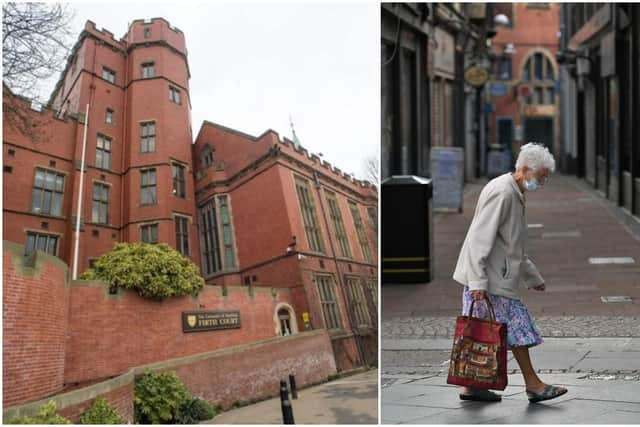Coronavirus 'could cause long-term lung damage' new University of Sheffield study finds
and live on Freeview channel 276
Research by the University of Sheffield, in collaboration with the University of Oxford, is the first in Europe to use hyperpolarised xenon gas with MRI scanning to identify the impact on lung function as patients recover from Covid-19, when standard MR and CT scans may be normal.
In some people, the symptoms of Covid-19 can continue for many months after the infection, which may adversely affect their quality of life, for example many people complain of persistent breathlessness and fatigue.
Advertisement
Hide AdAdvertisement
Hide AdJim Wild, Professor of Magnetic Resonance Physics at the University of Sheffield and Fergus Gleeson, Professor of Radiology at the University of Oxford, are investigating possible reasons for patients remaining short of breath following treatment for Covid-19 pneumonia, even after they have been discharged from hospital.


They are working with an initial group of 40 patients in Sheffield and Oxford over the next six months.
So far, the hyperpolarised xenon MRI technique has identified weakened lung function in all patients who have taken part in the study- this damage to lungs from Covid-19 is not visible on a standard MRI or CT scan.
Professor Jim Wild, Head of Imaging and NIHR Research Professor of Magnetic Resonance Physics at the University of Sheffield, said: “Hyperpolarised xenon MRI offers a unique means of imaging impairment to oxygen uptake in the lungs caused by Covid-19 infection and its after effects.
Advertisement
Hide AdAdvertisement
Hide Ad“In other fibrotic lung diseases we have shown the methods to be very sensitive to this impairment and we hope the work can help understand Covid-19 lung disease.”
Hyperpolarised xenon MRI is unique in its ability to measure gas transfer in the lungs with imaging and identify where the damage caused by Covid-19 pneumonia has occurred.
Early data suggests that the ability to transfer oxygen from the lungs into the bloodstream when breathing is visibly impaired for some time, even after hospital discharge following Covid-19 pneumonia.
Advertisement
Hide AdAdvertisement
Hide AdThis reduction in the function of the lungs detected in the study may be an explanation for some patients experiencing persistent symptoms even with seemingly ‘normal’ results from standard GP and hospital tests.
The striking early results have resulted in discussions to expand the study to involve more patients in the community, to identify the overall prevalence of lung damage and the speed of recovery from the virus.
The collaborative team is now working with clinicians providing follow-up services for patients post Covid-19 pneumonia to identify those feeling long-term ill health after Covid-19 who may wish to join the study.
Dr Claire Bloomfield, Chief Executive Officer of NCIMI said: “ It’s critical that we understand more about the long-term impact of COVID-19 , to ensure patients can get the best possible help with their care.
Advertisement
Hide AdAdvertisement
Hide Ad“NCIMI is delighted to be able to support this intelligent medical imaging research, calling on expertise from our partners and support from Innovate UK to deliver insights to improve care.”